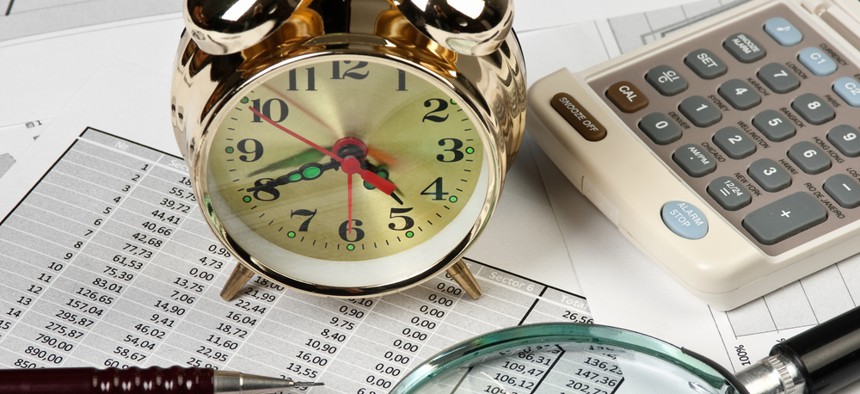
Laborant/Shutterstock.com
A Formula for Perfect Productivity: Work for 52 Minutes, Break for 17
Finally, social scientists suggest a precise time for mid-afternoon coffee runs.
Sometimes, productivity science seems like an organized conspiracy to justify laziness.
Clicking through photos of cute small animals at work? That's not silly procrastination, Hiroshima University researchers said. Looking at adorable pictures of kittens rolling helplessly in balls of yarn heightens our focus, and the "tenderness elicited by cute images" improves our motor function on the computer.
Going on long vacations? You're not running away from your responsibilities. Studies show that long breaks from the office reboot your cognitive energy to solve big problems with the mental dexterity they deserve.
Working from home? Shut down your boss's rude accusations that you're too slothful to put on a pair of pants in the morning by handing him this 2013 study of Chinese call-center employees, which found that "tele-commuting" improved company performance. (Actually, don't hand it to him. That would require going into the office.)
The scientific observation underlying these nearly-too-good-to-be-true findings is that the brain is a muscle that, like every muscle, tires from repeated stress. Many of us have a cultural image of industriousness that includes first-in-last-out workers, all-nighters, and marathon work sessions. Indeed, there are many perfectly productive people that go to the office early, leave late, and never seem to stop working. But the truth about productivity for the rest of us is that more hours doesn't mean better work. Rather, like a runner starting to flag after a few miles, our ability to perform tasks has diminishing returns over time. We need breaks strategically served between our work sessions.
So what's the perfect length for a break? Seventeen minutes, according to an experiment released this week.
Telling people to focus for 52 consecutive minutes and then to immediately abandon their desks for exactly 1,020 seconds might strike you as goofy advice. But this isn't the first observational study to show that short breaks correlate with higher productivity. In 1999, Cornell University's Ergonomics Research Laboratory used a computer program to remind workers to take short breaks. The project concluded that "workers receiving the alerts [reminding them to stop working] were 13 percent more accurate on average in their work than coworkers who were not reminded."
It seems unlikely that there is one number representing the ideal amount of time for every employee in every industry to break from work. Rather than set your stop-watch for 17:00 when you get up from your desk, the more important reminder might be to get up, at all. Indeed, the most productive employees don't necessarily work the longest hours. Instead, they take the smartest approach to managing their energy to solve tasks in efficient and creative ways.
Perhaps managing our office energy is a lost art. In the mid-1920s, an executive in Michigan studying the productivity of his factory workers realized that his employees' efficiency was plummeting when they worked too many hours in a day or too many days in a week. He instituted new rules, including an eight-hour work day and a five-day work week. "We know from our experience in changing from six to five days and back again that we can get at least as great production in five days as we can in six," he said. "Just as the eight hour day opened our way to prosperity, so the five day week will open our way to a still greater prosperity."
That company turned out to be one of the most profitable companies of the mid-twentieth century, and the boss at its helm is remembered as one of the most talented executives in American history. His name was Henry Ford.
(Image via Laborant/Shutterstock.com)






